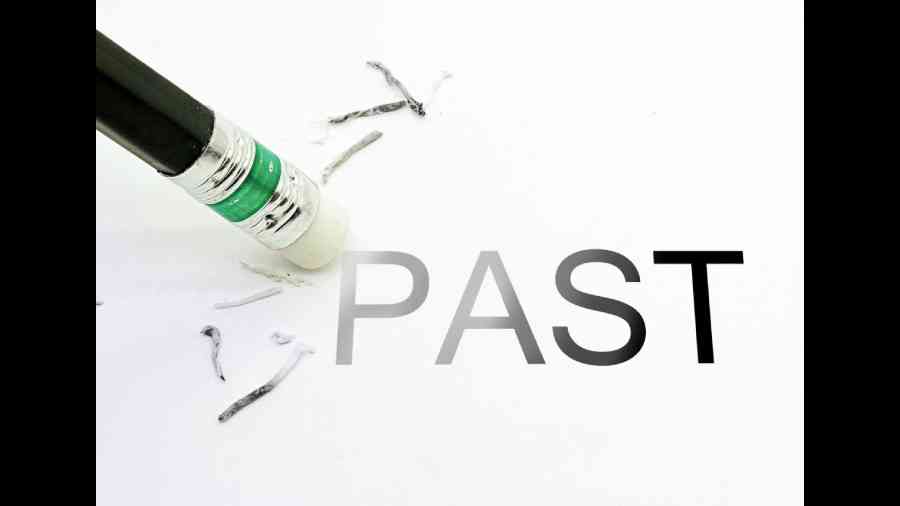The attitude to the past is one of the crucially distinguishing marks of a people, a nation, and a civilisation. No two nations or civilisations are likely to have identical ways of perceiving their past. In his essay, “History, Change and Permanence” (1979), the sociologist and linguist, Madhav Deshpande, put forward an insightful hypothesis about India’s relation with its past. He pointed out that Indian scholars of ancient texts often tend to project the present onto the past. If some modern ideas are found in some ancient text or practice, it was concluded that all that is present was also present in the past. Deshpande argued that in the process of justifying the present by invoking the past, “often an imaginary past was built to justify the concrete present.” The essay was not discussing fantasy-based claims of plastic surgery on the basis of the Sushrut Samhita or aeronautical accomplishments on the basis of ‘vimana vidya’. Deshpande was commenting on learned interpretations of the past. His argument is endorsed by several other sociologists. Milton Singer, after studying a community in southern India, observed that the process of osmosis of any cultural experience by Indian communities requires seeking at least a nominal sanction of established traditions. Traditionalising modernity helps, in his view, giving a ritual status to it. Read together with the Sankhya view of time-progression in cycles from a golden era, a satyayuga, to a degraded kaliyuga, these observations may explain why practically every generation in India’s post-shastra past of two thousand years has felt that its own time has been one of a steady deterioration. In the backdrop is imagined some bygone grand era of ethical and social order. That is a view that the material or social view of history may not find rational.
Without overlooking the simplification of the great social complexity, these large generalisations may help in understanding why the social discourse in India has always hinged around the perceived imperfection against some imagined perfection in the past. At the popular level, the tension between the two translates into a great sentimental attachment to the past, or an enigmatic longing for things afar, the para(the other, alien, and distant) and its superlative form param, as in paramartha or paramishwara. The longing in the heart for escaping one’s material and tangible world into other intangible realms, or other frameworks of reality that are imagined to have been in existence in some remote and vague past,has been a common pattern of sentiment permeating most social classes and castes in India. For the castes and the classes that faced oppressive exclusion from learning, knowledge, wealth and social status, the desire to escape was but natural. It was equally natural for various social reformers to want to rebel against the exclusion of the oppressed. Since pride of the past, particularly the pride for the imagined ‘golden era’ continued to prevail, unhappiness with the present became the hallmark of Indian society, quite till the end of the 20th century.
But a great change has overcome India. The 21st-century Indian society has no taste for unease with the present, no remorse for being where it is, no desire to escape from the filth of unethical yuga-svabhava which governs it. Indians seem to have decided, quite paradoxically, to celebrate the here and now as the moment of India’s rebirth, the nation’s self-fulfilment, the moment of having arrived. But that gives rise to a paradox. The idea of a Hindu rashtra is founded on the notion of a punyabhumi, the country of the birth of the citizen’s religion. In other words, the Hindutva view cannot exist in isolation from the notion of a past that gave rise to many sources of what is now described in the singular as ‘Hinduism’. But the supporters of Hindutva, with their imagination besieged by a constant bombardment of propaganda about the great wealth generated in India in recent years, are asked to think ‘positive only’. No complaints for suffering, no sighs for job losses, no criticism of the government are the habits set to their supplicant minds. Shraddha and bhakti, ‘trust only’ are expected of them in order to prove that they are not anti-Hindu. Such a citizenry is induced to feel entirely satisfied with what is doled out to it by the dispensation. The real graphs of economic growth may be going south; but if the regime asks them to believe the graphs are rising northward, the bhakt-people believe it. They may be rendered jobless, yet the bhakt-citizens like to believe that India is at the top of the world’s prosperity chart. Individual liberties may have sunk way below the constitutional norm, yet they claim that never before have Indians enjoyed so much freedom. They very much believe that India is where it never before was. That makes the past redundant for them. Thus, the historiography of Hindutva and the idea of the State that Hindutva has are at odds with each other. How that paradox can be resolved is a call that the advocates of Hindutva will have to take sooner or later. As of now, they think that propaganda can conceal every reality.
The rewriting of history textbooks is an attempt to carve out of the past the portions that match with Hindutva’s view of the past. The rest, such as Gandhiji’s assassination, cultural achievements of the Mughal era and the philosophical thought of Buddhism, is chopped off as conspiracy of Left-historians or the colonial cabal or simply as anti-national fallacies. However, the paradox holds. If the regime is fast turning citizens into unquestioning believers in the regime’s magical powers — chants like “Modi hai toh mumkin hai” iron out all scepticism, all questioning and all unhappiness with the present — then citizens shall never want to hark back ruefully to a mythical past. That will make the Hindutva historiography redundant, and without its absurd historiography, the ideology has no justification for driving masses into mass frenzy over a jobless economy as a great growth story. Without its historiography, rampant transgression of the Constitution by violet mobs has no rationale. Mythicising history makes people mourn for the present decay. Anaesthetising people’s sensitivity to the suffering surrounding them takes away their desire to return to history. If that is so, isn’t the Hindutva ideology one of the most absurd constructions of a view of the past as well as the present? Does it hope to take the nation forward to the past by wilfully changing the history textbooks?
G.N. Devy is an honorary senior fellow, The Asiatic Society of Mumbai










